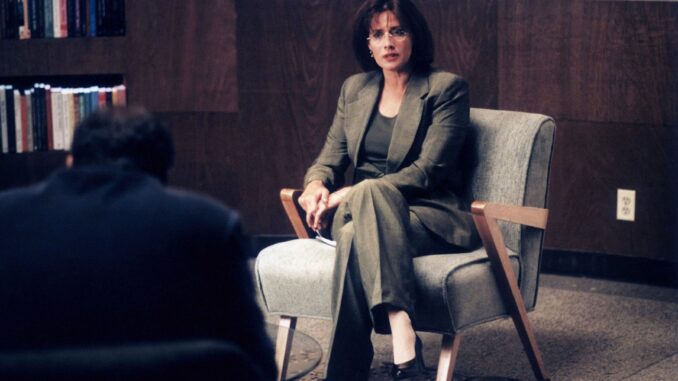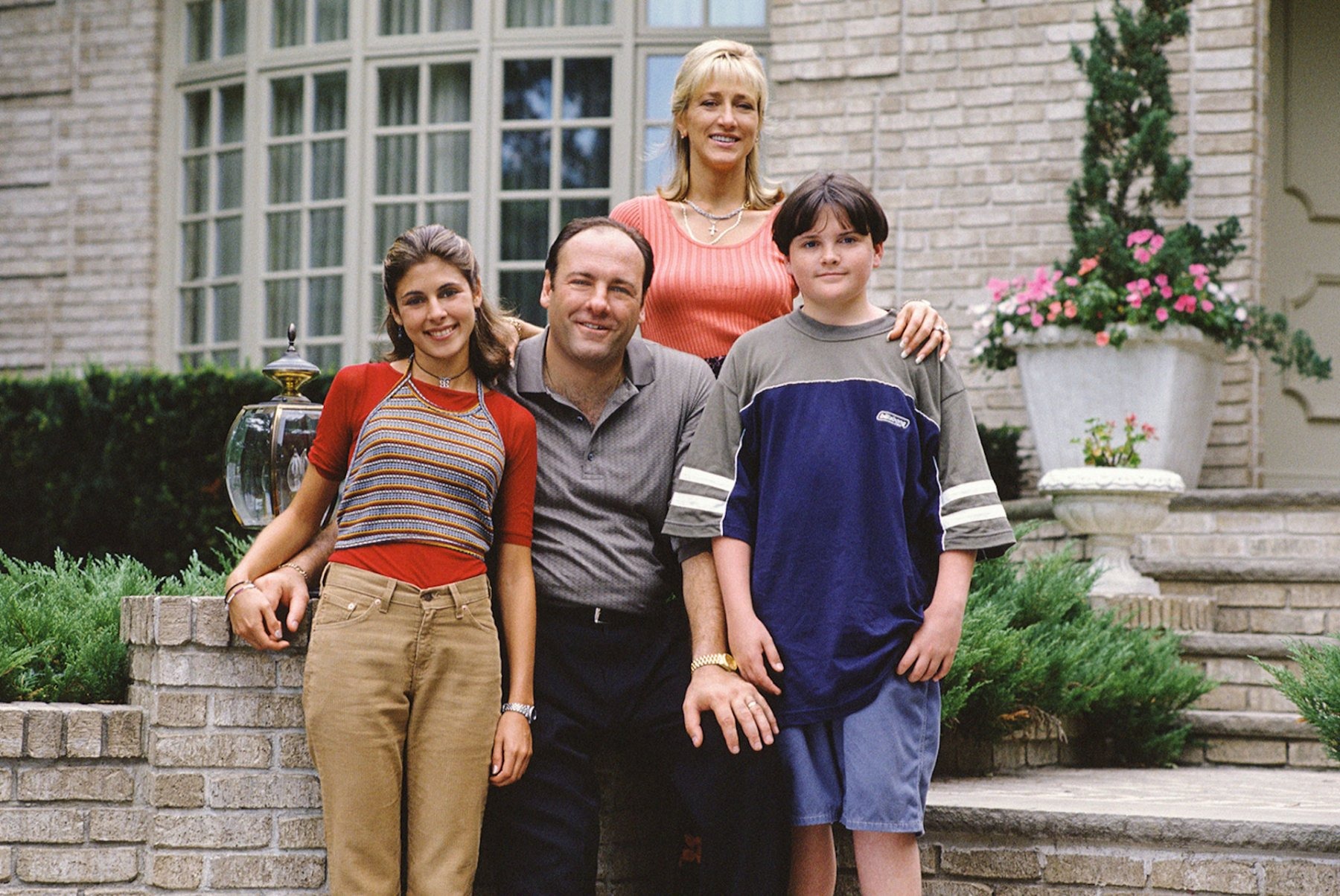
David Chase is feeling thankful. Twenty-five years after the premiere of the series that cemented his legacy, The Sopranos creator is filled with gratitude that he got to work with actors like James Gandolfini, Edie Falco, and Lorraine Bracco and a writing staff that included future Mad Men creator Matthew Weiner and Terence Winter (Boardwalk Empire). Gratitude for the freedom HBO granted him. And now that the show is a consensus classic, he says, “I have a great deal of gratitude that people still see it. That people seek it out. That people wanna hear about it.”
Yet when I ask Chase, during a wide-ranging video chat in December, whether he thinks it would be possible to make The Sopranos today, his reply is firm: “No, I don’t.” For one thing, his friends who’ve produced streaming series keep telling him that TV development is now “really all about money,” he explains. “All these corporations spent billions of dollars chasing after Netflix. And now they’re broke. So everything they produce, they want to do on the cheap.”
Chase is not known for his optimism, particularly with respect to TV. And he’s careful to note that he’s a bit out of the industry loop. But he’s not alone in doubting that the necessary conditions for bringing a project of The Sopranos’ ambition, originality, and cost to fruition exist in streaming-era Hollywood. As John Koblin, who with Felix Gillette co-authored It’s Not TV: The Spectacular Rise, Revolution, and Future of HBO, puts it: a quarter-century after that show kicked off TV’s most recent golden age, “It’s extremely possible that the next few years in television aren’t going to be quite so golden.”
This is the irony that must be acknowledged as we celebrate the 25th anniversary of a series that recast the small screen in its brilliant, violent, psychologically rich image—and whose prescience about the precarious nature of American life in the 21st century has made it even more relevant than it was when it debuted. It’s an indictment of an industry that squandered one of its most fertile creative periods by sacrificing quality for quantity, embracing franchises, genre spectacles, and reality TV. But, as new generations discover The Sopranos, it’s clear that audiences will always hunger for stories that plumb the darkest depths of human nature and societal dysfunction. The question is: Has TV as an art form become too debased to satisfy that hunger again?
The Sopranos arrived on Jan. 10, 1999, with the force of an explosion. And it made TV new again, annihilating the saccharine tropes of the broadcast writers’ rooms where Chase had spent decades on acclaimed shows like The Rockford Files and Northern Exposure. Everything the networks had ever produced (save, perhaps, Twin Peaks) suddenly felt stodgy or artificial by comparison.
Since then, the series has become such an important chapter in TV history that, especially if you haven’t revisited it in upwards of a decade, it’s easy to take for granted what made it so great. Nominally a gangster show, it certainly featured the guns, goomars, and gory deaths native to the genre. But protagonist Tony Soprano, indelibly embodied by Gandolfini, who died in 2013, wasn’t just a North Jersey mob boss; he was a husband, father, and the son of a cold, manipulative mother (Nancy Marchand). Haunted by sinister dreams that begged for interpretation, his panic attacks landed him in the offices of Dr. Jennifer Melfi (Bracco), a psychiatrist who would become his ambivalent confessor. “It’s good to be in something from the ground floor, but I came too late for that,” he tells her in the pilot. “Lately, I’m getting the feeling that I came in at the end.”
He is talking, obliquely, about America, a place known to Tony’s—and Chase’s—Italian immigrant forebears as the land of opportunity. “I think a lot of people knew, in 1999, that something was wrong,” Chase recalls. “It probably goes way back to the ’60s,” when issues of race, class, and the Vietnam War divided society. “So by the time 1999 came around, the joke was that America had become so greedy and so entitled that even a gangster couldn’t stand it.”
Determined to avoid the didactic tone that was then and is now, again, so common on TV, The Sopranos didn’t evangelize a set of values. It developed layered, conflicted characters and let them disagree. Tony’s wife Carmela, endowed with warmth and grit by Falco, is a Catholic who worries her husband is going to hell—and that by letting his crimes underwrite her lifestyle, she has imperiled her own soul as well. The couple’s relatively sheltered teenage children, high-achieving Meadow (Jamie-Lynn Sigler) and brooding A.J. (Robert Iler), can sound hopelessly naive when contrasted with their father’s lethal pragmatism. Yet their adolescent obsessions with fairness offer a bracing contrast to his brutality.

Along with thoughtful writing and career-making performances by a huge ensemble of mostly unknown actors, The Sopranos characters read as a genuine family (nuclear, extended, crime) because the show made a point of almost exclusively casting Italian Americans from the tri-state area. They “could have been at my house, as a kid, for Christmas,” Chase says. For Falco, this familiarity gave her a unique “comfort level” on set. “There are all these people that could have been family members,” she recalls. “I’ll never have another experience like that.”
Chase insisted on shooting on location. It was HBO’s support for this expensive and unorthodox plan that convinced him, after a frustrating round of pitching to broadcast networks and an unsuccessful attempt to develop the series at Fox, that it was the right home for the show. The late ’90s were a good time for HBO, which Koblin says was “sitting on a pile of cash,” to take a big risk. Executives who never absorbed broadcast’s conservative norms gave Chase free reign. Even as budgets ballooned, HBO signed checks without saddling him with endless network notes. “Nobody told us to do anything,” Chase marvels. “We had complete creative freedom. It’s unheard of.”
Liberated from the imperative to supply the feel-good storylines advertisers demanded from broadcast programs, The Sopranos got to be dark, enigmatic, pessimistic. It wasn’t just a stylistic choice. Chase’s approach had profound political resonance. The show inhabited a world where, as Peter Biskind, the author of Pandora’s Box: How Guts, Guile, and Greed Upended TV, notes, morally complex antiheroes supplanted blandly heroic good guys and “the system was stacked in favor of the powerful against the powerless.”
This sense of peril has only gained currency—between 9/11 and the Iraq War, the rise of Donald Trump, a pandemic, and the growing existential threat posed by climate change. The Sopranos’ finale, which closes with the family gathering at Holsten’s diner when a man who may intend to assassinate Tony walks in, was notoriously divisive. In retrospect, though, it was a bridge to a contemporary reality permeated by foreboding. We couldn’t know what would happen once the screen went black for an excruciating eight seconds before the end credits finally rolled, the way we can never be certain what the future will hold. But all signs pointed to doom.